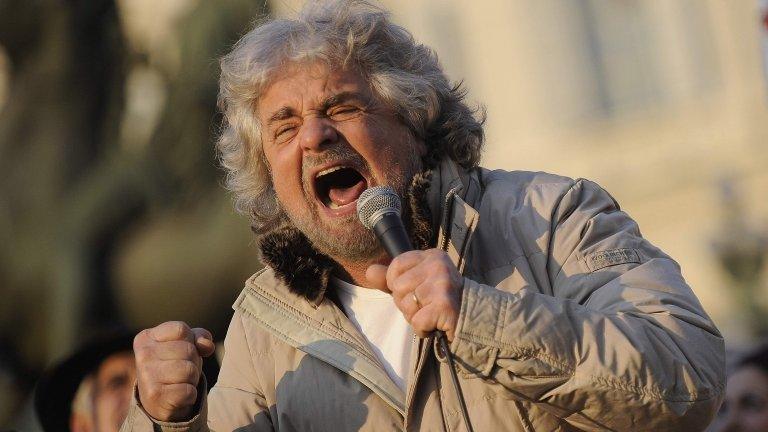Eurosceptic MEP group collapses
- Published
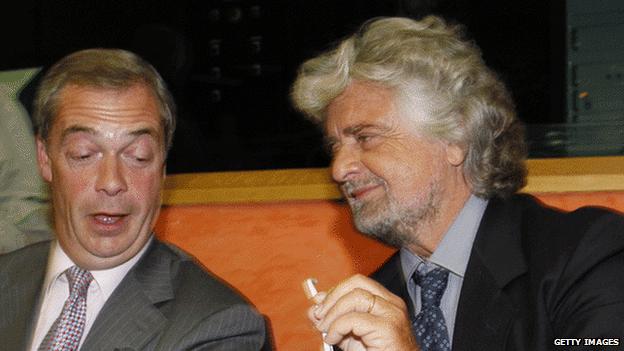
The UKIP party of Nigel Farage (left) and the Five Star Movement of Italy's Beppe Grillo (right) dominated the group
A Eurosceptic group in the European Parliament (EP) that includes Britain's UKIP and Italy's Five Star Movement has collapsed after an MEP withdrew.
The development means a loss of funds and less influence for the parties in the Europe of Freedom and Direct Democracy (EFDD) group.
The EFDD accused EP President Martin Schulz of engineering Latvian MEP Iveta Grigule's exit from the group.
Speaking to BBC News, Mr Schulz's office denied any wrongdoing.
The office said that after meeting Mr Schulz on Wednesday, Ms Grigule had brought her letter of resignation from the group to his office on Thursday morning.
Consequently, leaders of the European Parliament decided that the EFDD had to be dissolved, the office told the BBC.
To qualify as a group, parties must represent at least seven countries and Ms Grigule's departure had reduced the EFDD to six.
'Massive blow'
Ms Grigule, an MEP for the Latvian Farmers' Union, has applied to Mr Schulz to become an independent MEP.

Analysis: Chris Morris, BBC News, Brussels
According to one source in the European Parliament, the EFDD group was due to get just over 4m euros (£3.2m; $5m) in funding in 2015 - more than 80,000 euros per MEP in the group.
For UKIP, with 24 MEPs, that's more than 2m euros of revenue hanging in the balance. Half of it usually goes to the communications budget - a valuable resource in an election year.
If Mr Farage is no longer the leader of a group, he will also get less speaking time in the parliament, and fewer opportunities to make speeches on big set-piece occasions.
UKIP alleges that the Latvian MEP who has left the group was bullied into submission by parliamentary leaders but she is so far unavailable for comment.
A UKIP statement accused the President of the European Parliament, Martin Schulz, of acting like he was running the parliament of a "banana republic". But without a formal political group, UKIP will be a less powerful voice in Brussels.

Nigel Farage said his party had been the victim of a back-room stitch-up and he accused Martin Schulz of "effectively blackmailing" Ms Grigule by offering her the leadership of an overseas delegation. That, he said, was how the British got treated in Brussels.
The EFDD's collapse has also forced MEPs to postpone a decision on the winner of the Sakharov Prize for 2014 until next Tuesday, for administrative reasons.
UKIP's 24 members made up half of the 48-strong EFDD group.
They were followed by Beppe Grillo's Five Star Movement which had 17 MEPs. Other members included the Sweden Democrats, one French independent, and MEPs from the Czech Republic and Lithuania.
Eurosceptics made major advances at the European elections in May, with the EFDD gaining an extra 17 seats.
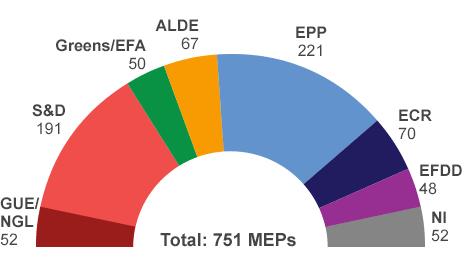
The make-up of the 2014 European Parliament before the collapse of the EFDD
News of the EFDD's fall was welcomed by the largest group in the parliament, the centre-right European People's Party (EPP), which tweeted, external: "First defeat for Eurosceptics! EFDD group disappears with departure of Latvian Iveta Grigule."
The leader of the UK Labour Party at the European Parliament, Glenis Willmott MEP, said Nigel Farage had suffered a "massive blow".
Mr Farage has predicted UKIP could hold the balance of power in the UK following the general election next year after his party gained its first elected MP last month and narrowly failed to take a seat from Labour at a by-election.

Why being in a group is better
Non-attached MEPs - collectively called "NI" in the parliament - cannot be heads or deputy heads of EP committees or delegations
Groups have more power than NI members to draft legislation and steer it through parliament
NI members cannot table group amendments or motions for resolutions at full EP sessions
MEPs in groups have more staff than NI members, who are excluded from the total 59.8m euro (£48m; $76m) pot allocated to groups to cover their administrative expenses
Average budget for NI members is 43,000 euros each.

- Published1 July 2014
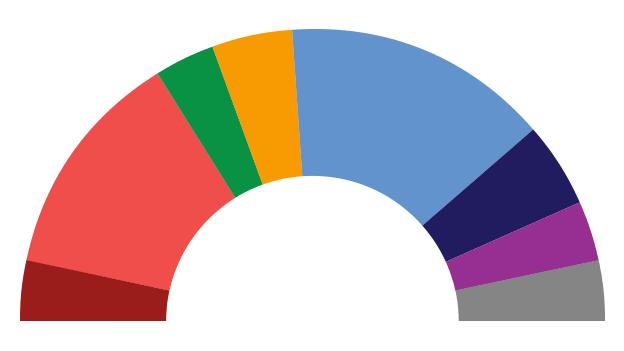
- Published21 November 2014
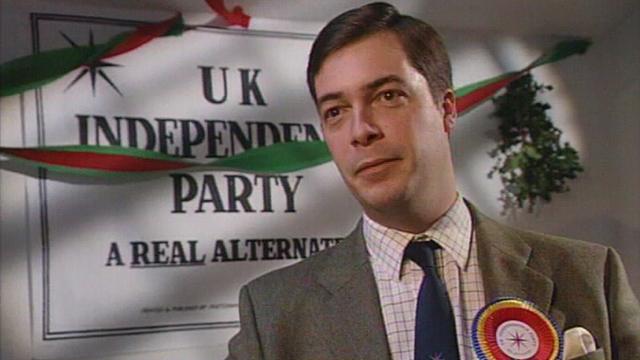
- Published26 February 2013
